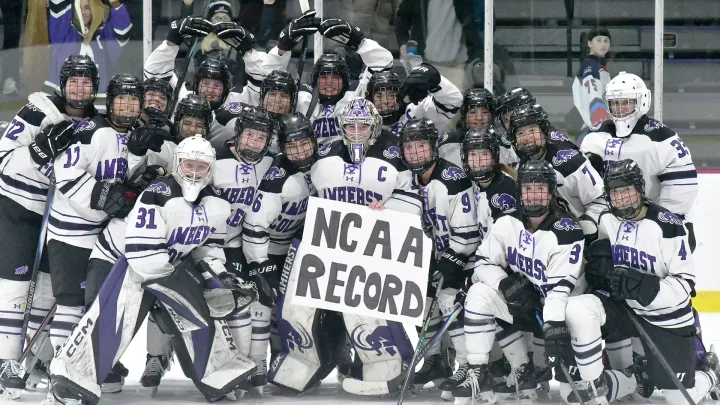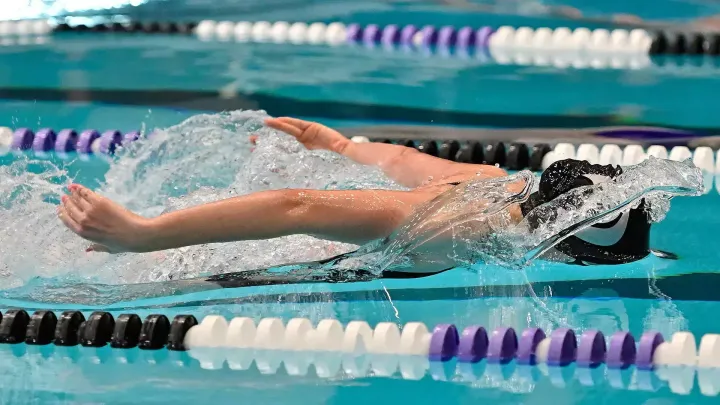Spectators witness Tiger's weaknesses
Imagine the best player in the world standing on the 17th tee at Augusta National Golf Club, having just chipped in for a dramatic birdie. Imagine him with a two-stroke lead over his opponent, a man whose putting stroke is called “the claw.” Imagine a father watching from a couch, too sick even to attend his son’s extraordinary chase for a fourth green jacket.
Now imagine that player hitting his tee shot on 17 into the woods. Imagine his lead dwindling to one. Imagine a tee shot softly landing in the second cut of rough at 18. Imagine a missed putt for par on the 18th hole and a made par putt by the claw man. Imagine that two-shot lead down to zero-and a playoff looming.
On that 17th tee, a 425-yard par four, it seemed unfathomable that the best player in the world-maybe not the top-ranked player in the world, but clearly the best-would surrender a two-shot lead in the biggest tournament of the year. Here was a man chasing a championship he would dedicate to his father, a championship that Jack Nicklaus won six times, a championship that Phil Mickelson won with a downhill birdie putt on 18 only a year ago, a championship with “a tradition like none other.” The script was written; now it was time for Tiger Woods to act it out. Two pars, two holes at even par, that’s all he needed. Even a bogey on that infamous 18th hole would have sealed the championship.
On Sunday, a new Tiger Woods appeared on millions of television sets. A Tiger Woods who, despite tying a Masters record with seven consecutive holes under par and coming back from a tremendous deficit, momentarily choked under pressure. In 10 years on tour, we have never seen Tiger lose a tournament like this. He had been beaten before, but he had never lost it himself. On Sunday, he momentarily lost the Masters.
When those millions of television sets finally turned off Sunday night as the sun slowly hid itself behind the tall trees in Augusta, Ga., Tiger Woods donned his fifth green jacket. Sure, he had blown a two-shot lead with only two holes left to play, but who will really remember his human tragedy on 17 and 18? People will remember the chip-in at 16, the hug with his mom, the tears for his dad and the Tiger-red shirt clashing with the storied green jacket. People will remember the heroics, the triumph and the crowd’s frenzy.
To be successful, golfers must have extraordinarily short memories. Why? Because the most important shot is the next one. However, golf fans, and sports fans in general, do not have short memories; they have warped memories. They want to remember the fairy tale ending, the story of Tiger Woods’ chip in at 16, his birdie on the first hole of the playoff, and his spectacular run of seven straight birdies. They will forget his bogeys on holes 17 and 18, and they will forget that, for the first time, Tiger Woods showed that he’s not invincible, and not the same player who put fear in all his opponents.
If you saw Chris DiMarco on Sunday, you did not see a man intimidated by his opponent, nor a man resigned to second place. You saw a man who stared in the face of Tiger Woods and finally proved that Tiger is not immune to choking. Chris DiMarco may not have beaten Tiger Woods on Sunday, but he sure gave him a scare.
DiMarco and Woods went head-to-head for 72 holes, battled the rain, the course and the rest of the field-and neither budged. They truly defined what it means to be a competitor, to be the best and to rise to the top when it matters most. If you weren’t watching the Masters on Sunday, you missed one of the greatest duels in sports history. I would be hard-pressed to call you a sports fan.
On Sunday’s edition of “Baseball Tonight,” Harold Reynolds and John Kruk debated whether it was tougher to hit a baseball or a golf ball. Clearly, it is easier to hit a golf ball-it’s not moving-but when the Masters is on the line, and the greatest golfer in the world buckles under pressure, hitting three bad shots on the last two holes, it shows how difficult it really is to hit a golf ball. Anyone can walk up to the driving range, grab a rental club and start whacking away; in the same way that someone can grab a bat, put a ball on a tee and start whacking baseballs all over the park. In both sports, it’s not the same without the competition. Kruk seemed to realize this; Reynolds did not. No golfer or any reasonable person will ever claim that hitting a 90 mph fastball is easy, but for some reason, people think that hitting a golf ball is easy. Ask Tiger Woods, the greatest golfer in the world, whether hitting a golf ball on the 72nd hole of the Masters was easy.
Imagine if baseball’s greatest hitter, Barry Bonds, needed to hit a home run to win a World Series. Imagine if each time he strode to the plate his salary would increase or decrease. Imagine walking to the plate with two outs in the ninth inning with a man on first. Imagine if his salary were based on performance, not predetermined by a contract. A home run means a World Series Championship and over $1 million. An out means only $500,000 and second place. There is nothing in between. When your livelihood, your salary and your legacy are on the line, the pressure mounts; it is about more than just pride.
I’m not trying to say that hitting a golf ball under pressure is the most difficult thing to do in sports. I’m trying to say that golfers (like Tiger Woods) feel as much, if not more, pressure as any other type of athlete. On those 17th and 18th holes on Sunday, Tiger Woods stepped up to the tee like he had thousands of times before. His goal: to make the perfect swing, a swing that would drive that small, white, stationary ball straight and long. A swing that had been grooved, tweaked and perfected since he was two years old.
But he couldn’t do it. The greatest golfer in the world could not do what he had done millions of times before. His inability does not reflect his weakness; it reflects the strength and difficulty of his sport. If you cannot understand why Tiger Woods could not do what seems so easy, then you cannot even begin to understand what pressure feels like. It is a feeling like none other.




Comments ()